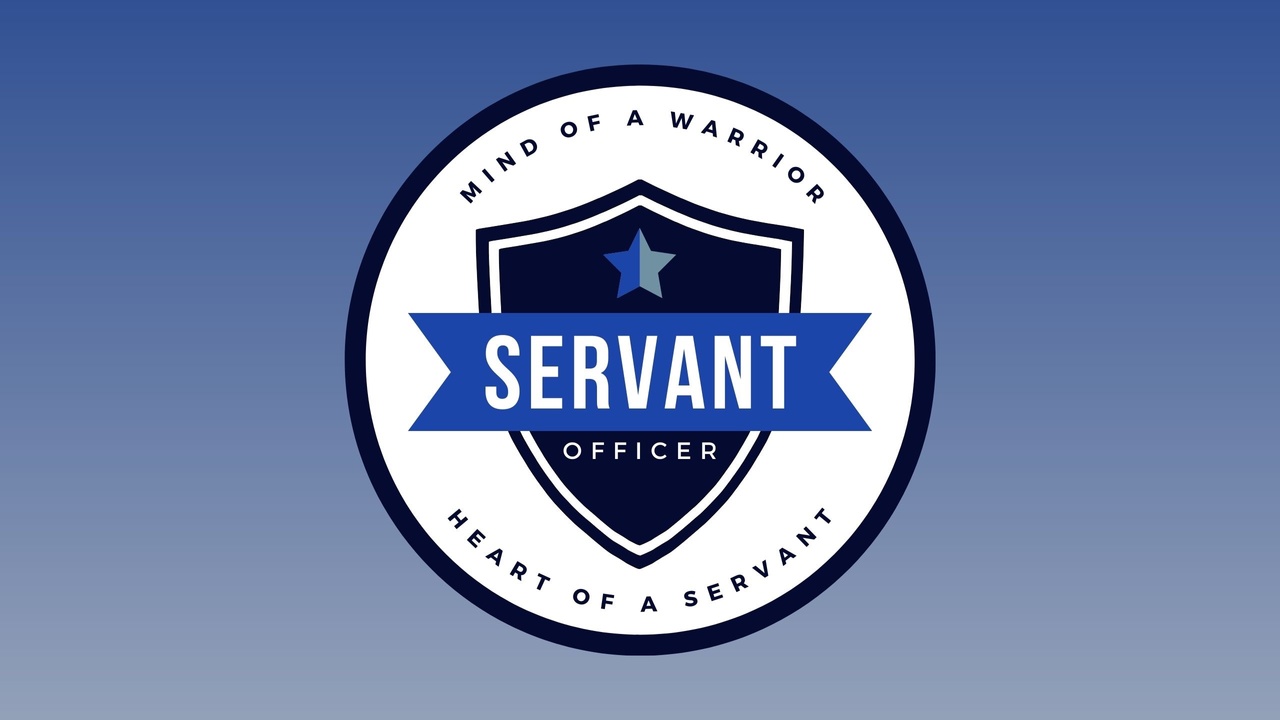The Servant Officer (Part 3): Cops Have Always Been Servants at Heart
Feb 23, 2022
Many of you know that I'm a retired cop. I was raised by a cop, and grew up to become a cop. In fact, I started as an officer in Asheville, NC at 21 years of age - the youngest age you could be. I was truly fortunate enough to have had a successful career where I was able to rise through the ranks in various organizations and become a chief at a very young age where I guided two organizations through the 1980s to the 2000s. During the bulk of the time I was a practitioner of law enforcement, we went through a variety of changes and evolutions as a profession, but always maintained a level of respect and nobility among the public. Cops, as a general rule, were viewed with respect and, often, as heroes.
Since retiring, I've chosen to give back to my beloved profession by helping today's practitioners become the best version of themselves by learning from my career and leadership scars. It's a rewarding vocation and one I've been truly blessed to be called to do.
The last several years have been difficult to watch. Not just for me as a former officer and chief executive, but to see what is happening to the current men and women in this noble (and, yes, it is still a noble) profession. From bad actors within the profession to defund-the-police politicians to anti-police activists and often the media, there has been a relentless stream of negative stories and sentiment thrown at law enforcement. All of a sudden, we were the villains and no longer the heroes.
As an avid reader of leadership and personal development books combined with what I was seeing and hearing from students and practitioners I know across the country, I knew we needed a new, proactive path forward for law enforcement. Something I call the Servant Officer.
In fact, what truly crystalized this concept for me was when I was teaching the servant officer class a few months ago in the Gulf Coast region of Mississippi and drove by one of the local departments who had recently completed a state-of-the-art building that on one side had the words "To Serve" and on the adjacent corner side of the building "To Protect"
I went back to class and said to the students, remember, "The rules of law enforcement have changed, the purpose has not."
So what allows the modern officer to live and work in their purpose as a peace officer? Well, quite simply it's to realize that the key is to balance the warrior skills required of the job to ensure the safety of the officer and communities they serve with the heart of a Servant. Further, I believe this balance is achieved through adapting and training officers to adjust to the new cultural mindshift. This is in part achieved by accepting the new normal of community expectations that being partners with police is not suggested but required.
Police must connect with the communities they serve with the understanding that every police encounter is important and therefore requires certain values and skills. I believe these are not just values and skills but are what I call people-centric values and people-centric skills.
Let me give a few examples of each.
People-centric values are those values that are internal drives of action. They are inherently part of who you are and what you value. An example of this would be sanctity of life. A Servant Officer above all values and embraces the sanctity of life of both the citizens within the community as well as their colleagues and their own.
Another example of a people-centric value is exhibiting the ability to create partnerships within their communities. By actively pursuing these partnerships, the Servant Officer positions themselves as active participants with the community leaders and citizens.
There are many many more that we discuss in class, but in the interest of brevity, we will move on to what people-centric skills the Servant Officer embodies. Skills differ from values in that skills are learned behaviors and actions that help you perform your job more effectively and professionally. An example of people-centric skills is exhibiting emotional intelligence. The ability to be self- and other-aware and to respond appropriately are keys to becoming a Servant Officer. Another example is the ability to actively listen to others. An officer who can actively listen to citizens and others will make better quality decisions in the field.
In summary, we here at LHLN are so excited to be bringing this innovative and first-of-its-kind program to law enforcement across the country.
We encourage you to respond to us with your comments and thoughts on what you have read about the class. Visit our website to learn more about our program and to watch the video we released about it earlier this week.
I personally want to invite you to join me and a panel of current chief executives on this Friday, February 25, 2022 at 11 a.m. eastern time. Please register and join us - its free because our goal is to create a dialogue and find the best solution.
Thank you and let's create the Modern Officer, who is a Servant Officer with the Mindset of a Warrior and the Heart of a Servant.
Dean
Stay connected with news and updates!
Join our email list to receive the latest news and updates from the LHLN team!
We will never sell your information, for any reason.
